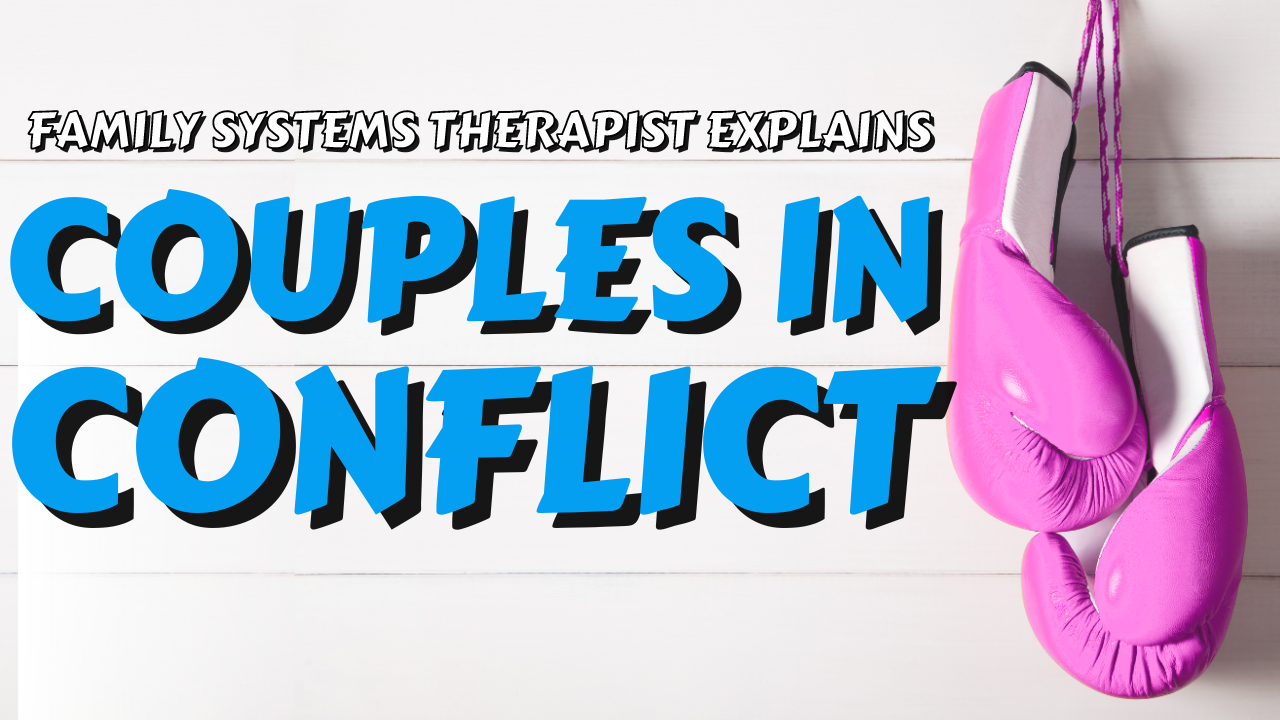Why You Are Constantly Fighting in a Relationship
Jul 01, 2022
If you are constantly fighting with your partner, and want to change the relationship dynamic to a healthy one, consider if you're trying to change each other. This is, in my experience, one of the major paths a couple can take that ends a relationship. Murray Bowen, one of the main contributors to Family Systems Theory outlined an idea he dubbed the nuclear family emotional system, which outlines the three ways that couples can reduce relationship discomfort - the first of which is the these are the conflict-and-distance pattern.
- Learn more about Differentiation Of Self here.
- Take our conflict style quiz here
The idea that conflict is about reducing anxiety seems absurd, but the theory makes a lot of sense when you think about the anxiety that comes from discovering our differences and the agitation that might cause us on a deeper level of thinking.
We seem to go through a pattern when dating people, the most familiar is the Honeymoon Phase in which we seem to only be able to see all that we have in common and are skillful at not seeing any red flags or differences. Once this phase passes there's an instinct that comes up to minimize the differences we have by teaching or showing the other person our point of view.
Understanding Differentiation Through Examples In therapy, Ioften encounter couples who use collective pronouns like "we" instead of individual pronouns like "I." This indicates, at least to me, a lack of differentiation, where the boundaries between self and other are blurred. For instance, saying "we feel like this is what we need" instead of "I feel excited" shows a merging of individual identities. The goal in therapy is to help individuals distinguish between their thoughts and feelings, promoting clearer communication.
The Role of Chronic Anxiety in Conflict Chronic anxiety plays a significant role in relationship conflicts. The less differentiated an individual is, the more chronic anxiety they possess. This anxiety can manifest in various automatic reactive behaviors, such as being defensive, physically retreating, psychologically withdrawing, or experiencing emotional overload. These behaviors can escalate conflicts, especially when differences between partners become apparent.
Relationship Patterns and Conflict Relationships amplify chronic anxiety because two individuals bring their anxieties into the shared space. Bowen identified four ways people handle this increased anxiety: Conflict, Distance and Cut-Off, Over-Function/Under-function, and Triangles. Conflict can be a way to temporarily alleviate anxiety, but it's not a sustainable solution. Distance and Cut-Off involve emotional or physical distancing from the partner. Over-Function/Under-function sees one partner taking on more responsibilities, leading to resentment. Triangles involve bringing a third party into the relationship dynamics, which can sometimes lead to affairs.
The Path Forward The key to resolving conflicts lies in addressing chronic anxiety through differentiation. By separating thoughts from feelings and focusing on individual needs and desires, couples can communicate more effectively. I encourage individuals to learn more about differentiation, chronic anxiety, and conflict resolution to foster healthier relationships.

